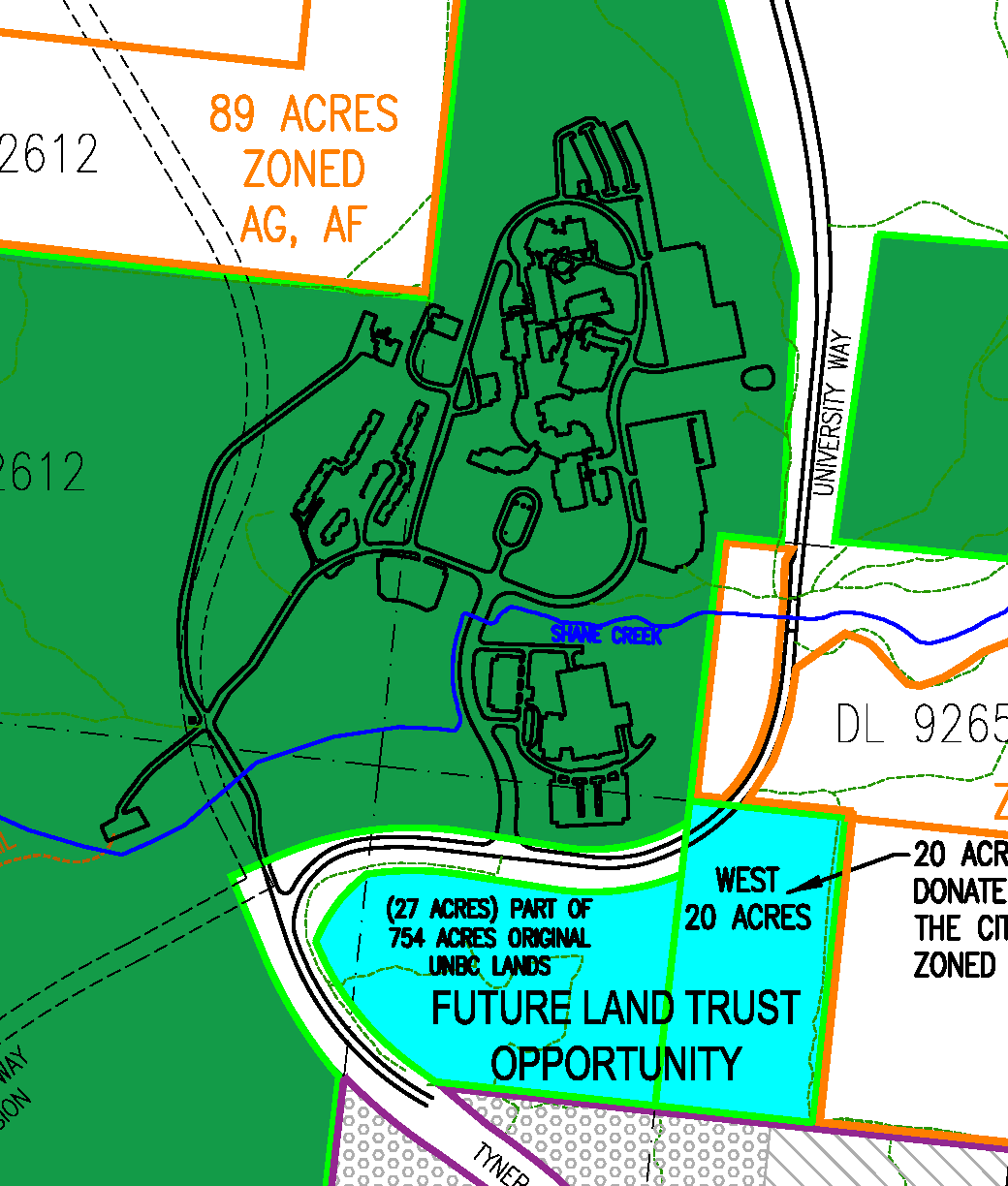The UNBC Land Trust is a transformative development of UNBC land in excess to academic needs that focuses on sustainability, reputation and strategic investments for UNBC.
The primary purposes of the UNBC Land Trust are to enhance the campus community as a subset of the broader community and as a path to the creation of place and consequently destination, and to create a new source of revenue as a long-term source of support for academic, research, and operational excellence.
The proposed Land Trust is located on 46 acres directly across University Way/Tyner Boulevard from the main entrance to UNBC’s Prince George campus, on the unceded traditional territory of the Lheidli T’enneh, part of the Dakelh (Carrier) First Nation.
Aligned with UNBC’s vision, mission, values, and Destination 2040 Campus Master Plan, this project repositions UNBC for a future as a Destination University.
It will enhance culture and vibrancy on campus and allow greater personal interaction and lasting connection with surrounding communities, with an ambitious and inspiring vision to transform lives through excellence, inclusivity, and compassion.
 UNBC will lease the right to develop the land for 99 years, but will not sell title to any land. High-resolution image
UNBC will lease the right to develop the land for 99 years, but will not sell title to any land. High-resolution image
The Land Trust structure involves incorporation of a BC Business Corporation as Corporate Trustee. The University is the Landholder and sole Shareholder and, together with the UNBC Foundation, the beneficiary. The University will activate the UNBC Foundation and will retain the power to appoint the Board of Directors of the corporate trustee. This structure provides a clear and direct governance relationship between the University and the Corporate Trustee, and aligns with the non-profit, charitable, and community culture of the University.
Events and Updates
Vision Development
Together with DIALOG Design, UNBC has developed a comprehensive visioning process to provide guidelines on land development to the Corporate Trustee. The DIALOG Design team completed the latest UNBC Campus Master Plan and they understand the context and community of UNBC and can align that with the UNBC Land Trust vision. The resulting vision will encompass results of interviews, workshops and analysis of existing data and plans from a variety of perspectives.
